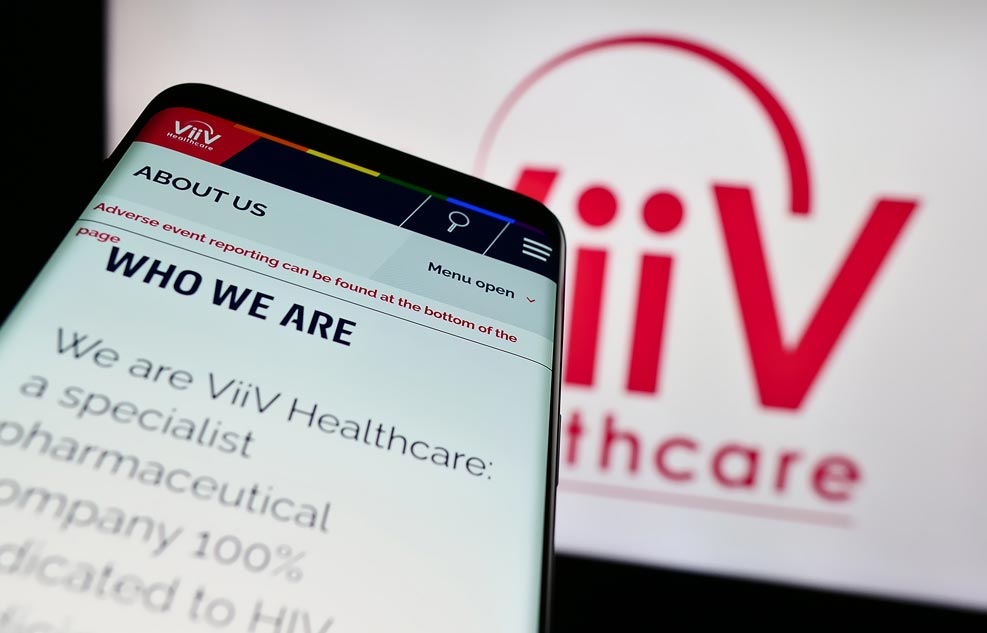Advertisment
Positive data demonstrating 2-drug regimen shows Dovato is as effective as 3-drug regimen Biktarvy for maintenance therapy of HIV-1. Viiv HealthCare

GSK plc announced that ViiV Healthcare, the global specialist HIV company majority owned by GSK, with Pfizer and Shionogi as shareholders, has shared 48-week findings from the PASO DOBLE (GeSIDA 11720 study), the largest head-to-head, phase IV randomised clinical trial (RCT) investigating the 2-drug regimen Dovato (dolutegravir/lamivudine [DTG/[3TC]) compared to the 3-drug regimen Biktarvy (bictegravir/emtricitabine]/tenofovir alafenamide fumarate [BIC/FTC/TAF]) for the treatment of HIV-1 in people who are virologically suppressed and who could benefit from treatment optimisation.
Findings showed that switching to DTG/3TC in virologically suppressed adults living with HIV demonstrated non-inferior efficacy in maintaining viral suppression compared with switching to BIC/FTC/TAF. These data will be presented at the 25th International AIDS Conference (AIDS 2024), held in Munich, Germany (22-26 July).
Harmony P. Garges, M.D., MPH, Chief Medical Officer at ViiV Healthcare, said: “The results from PASO DOBLE show that Dovato demonstrated non-inferior efficacy compared to Biktarvy, and that the average weight gain for trial participants taking DTG/3TC was significantly lower than those taking BIC/FTC/FTC over the course of the year. This is a meaningful outcome, as treatment-related weight gain is an important topic for many people living with HIV. At ViiV Healthcare we’re dedicated to bringing innovative HIV treatments to people living with HIV that are not only safe and effective, but also address their specific needs beyond viral suppression.”
In the PASO DOBLE clinical trial , 553 people living with HIV and virally suppressed switched treatment to either DTG/3TC (n=277) or BIC/FTC/TAF (n=276). The study population included individuals who were on therapy that could be optimised, such as multiple tablet regimens, or those containing pharmacokinetic boosting agents or drugs with cumulative toxicity, such as efavirenz or tenofovir disoproxil fumarate (TDF). The study met its primary endpoint when DTG/3TC demonstrated non-inferior efficacy versus BIC/FTC/TAF based on the proportion of participants with viral RNA greater than 50 copies/mL at 48 weeks using the FDA snapshot and a 4% non-inferiority margin in the exposed intention-to-treat population.
At 48 weeks, DTG/3TC was non-inferior to BIC/FTC/TAF (risk difference between DTG/3TC [2.2%] minus BIC/FTC/TAF [0.7%] of 1.4%, 95% CI -0.5 to 3.4). One participant in the BIC/FTC/TAF arm and zero in the DTG/3TC arm had protocol-defined confirmed virological failure through week 48 (HIV-1 RNA greater than 50 c/mL followed by a second consecutive HIV-1 RNA assessment
greater than 200 c/mL).The study found in a key secondary greater than endpoint that weight increased significantly more in participants who switched to BIC/FTC/TAF (adjusted mean change 1.81kg, 95% CI 1.28-2.34) then in those who switched to DTG/3TC (adjusted mean change 0.89kg, 95% CI 0.37-1.41) [difference 0.92kg, 95% CI 0.17-1.66] through week 48. Equally, the proportion of participants with weight gain greater than 5% at week 48 was significantly higher at 29.9% for BIC/FTC/TAF compared to 20% for DTG/3TC (adjusted OR 1.81, 95% CI 1.19-2.76).
Weight change with DTG/3TC did not differ between men and women or based on the previous regimen of participants, whereas the proportion of trial participants experiencing greater than 5% weight gain with BIC/FTC/TAF was approximately 45% higher than those taking DTG/3TC when switching from a regimen with abacavir (30.6% BIC/FTC/TAF vs 21.1% DTG/3TC), and about 2-fold higher when switching from a regimen with TDF (40.7% BIC/FTC/TAF vs 19.5% DTG/3TC). Safety was comparable through week 48 and consistent with known safety profiles. There were few discontinuations due to adverse events in both study arms (DTG/3TC = 1, 0.4%; BIC/FTC/TAF = 2, 0.7%), with no differences between arms.
Esteban Martínez, MD, PhD, Chief Executive Investigator of the PASO DOBLE study and Senior Consultant in Infectious Diseases at Hospital Clínic of Barcelona, Spain said: “The HIV treatment regimens that are commonly prescribed today are all highly effective, which makes it critical that we study the impact of these therapies beyond just viral suppression. The results from PASO DOBLE show Dovato, a 2-drug regimen, not just demonstrated the same efficacy as a 3-drug regimen, but also showed less weight gain compared to BIC/FTC/TAF through 48 weeks.”
About PASO DOBLE :The PASO DOBLE (NCT04884139) randomised clinical trial is a phase IV, open-label, randomised multicentre clinical trial evaluating the efficacy of DTG/3TC versus BIC/FTC/TAF for the maintenance of virologic suppression in people living with HIV-1, conducted in 30 sites across Spain. Virologically suppressed people living with HIV on regimens containing 1 pill/day, boosters, or drugs with cumulative toxicity such as efavirenz or TDF were eligible and were randomised (1:1) to switch to either DTG/3TC or BIC/FTC/TAF. The primary endpoint was the proportion of people living with HIV with RNAgreater than 50 copies/mL at 48 weeks (FDA snapshot, 4% non-inferiority margin) in the intention-to-treat exposed population. Secondary outcomes measured included, among others, absolute weight gain, BMI change, and the proportion of participants with weight change greater than 5%.





